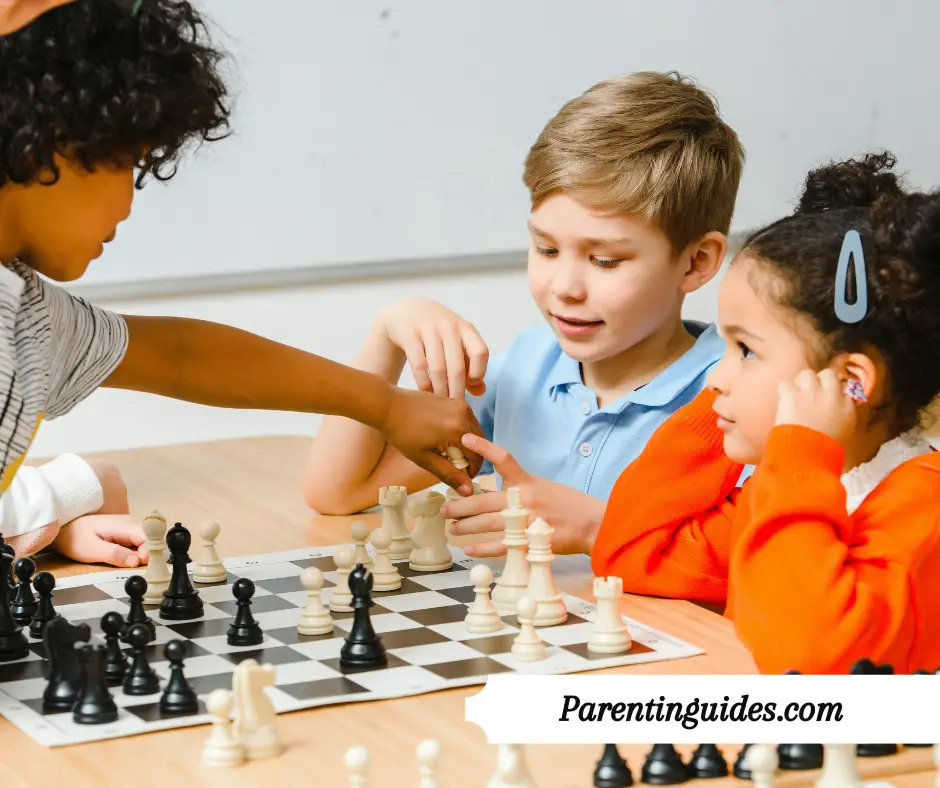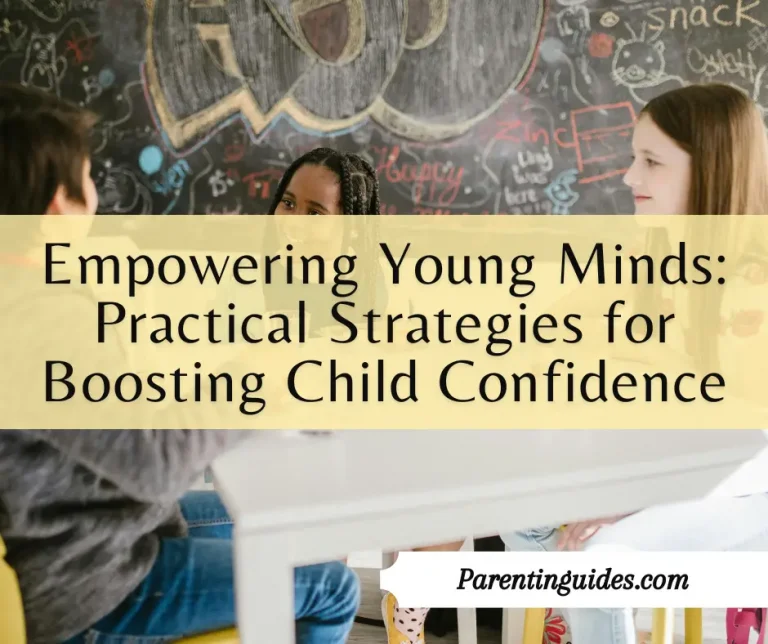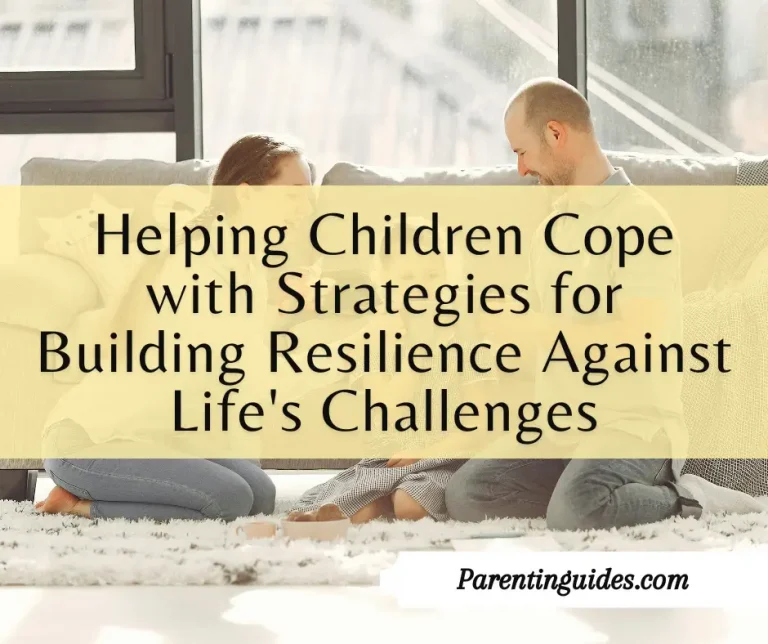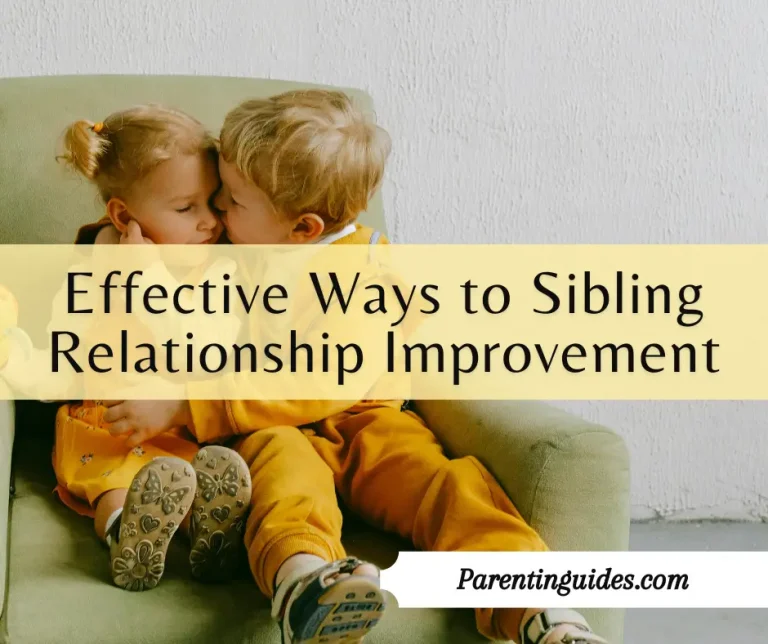Emotional intelligence is a fundamental skill that we often overlook in childhood development. Here, its impact is profound throughout our children’s lives. As a mother, I’ve seen firsthand how nurturing emotional intelligence in children from a young age equips children to better manage their emotions. They also forge healthy relationships and thrive academically and socially. My husband and I believe that as parents, our role is not just to provide for our children. It is also to guide them in understanding and expressing their emotions constructively.
Emotional intelligence involves more than just feeling emotions. It’s about recognizing, understanding, and managing our own emotions while also being sensitive to the emotions of others. This skill set is critical, as it lays the foundation for a child’s ability to navigate the complexities of social interactions, academic challenges, and personal growth. By investing in developing emotional intelligence in children, we are setting them up for success in every sphere of their lives.
Our journey in fostering this skill in our children has taught us that it’s not about shielding them from negative emotions. Simply, it is rather equipping them with the tools to face them. From a very young age, we’ve encouraged our kids to name their feelings, talk about them, and understand that it’s okay to feel them. We’ve noticed that this not only helps in managing emotional outbursts. Moreover, it also deepens their empathy towards others, which is a critical component of emotional intelligence.
In addition, emotional intelligence is pivotal in today’s world where academic success is often glorified. But the ability to handle stress, setbacks, and interpersonal relationships can determine true success in life. Recognizing the importance of emotional intelligence in children has transformed how we approach parenting. It’s not just about academic grades or extracurricular achievements. Simply, it is about nurturing well-rounded, emotionally intelligent individuals.
In this article, I will delve deeper into understanding emotional intelligence in children, its key components, and practical ways to nurture it in our children. I aim to share insights and experiences that will help you, as a parent, to not only understand the importance of emotional intelligence. It is also to actively foster its development in your children. By the end of this guide, I hope to equip you with the knowledge and tools to enhance your child’s emotional growth, creating a foundation for a fulfilled and balanced life.
Understanding Emotional Intelligence in Children
Definition and Components
Emotional intelligence is something my husband and I often discuss when observing our children’s interactions at home and with friends. Simply, emotional intelligence in children encompasses their ability to recognize and manage their own emotions, understand others’ feelings, and navigate social relationships effectively. The key components include self-awareness, self-regulation, motivation, empathy, and social skills.
Self-awareness is about children recognizing their own emotions and understanding their triggers. Self-regulation involves managing those emotions in healthy ways. Motivation refers to channeling emotions toward achieving goals. Empathy is understanding the feelings of others, and social skills are about interacting effectively with peers. Each component is crucial and helps children build a well-rounded personality, which is essential as they grow.
Assessing Emotional Intelligence in Children
Recognizing the signs of emotional intelligence in children has been a learning curve for us. It starts with noticing how your child reacts to their own emotions and those of others. Do they understand why they feel a certain way? Can they calm themselves down? Remember that these are signs of developing emotional intelligence.
Different ages have different milestones. For toddlers, it might be the simple recognition of feeling happy or sad. As children grow, they should start to understand more complex emotions and how to handle them. For instance, my five-year-old has begun to understand feelings of frustration and is learning to say when he needs a moment to calm down, which is a significant milestone in emotional intelligence.
The Impact of Emotional Intelligence on Development
The impact of nurturing emotional intelligence in children is profound. Studies and personal observations have shown that children with higher EQ tend to do better in school. They can concentrate better because they manage their emotions effectively. It also reduces stress and improves academic performance.
Socially, these children are more adept at making friends and maintaining relationships. They understand and respect others’ emotions, making them well-liked and socially competent. Moreover, their mental health is generally better as they are equipped to handle emotional challenges. My husband and I have noticed that our children, who we’ve actively worked with on emotional intelligence, are more resilient and happier overall. They face life’s ups and downs with a healthy perspective, which is ultimately what we want for them.
Throughout this guide, I will continue to share more on how we can foster these critical skills in our children, aiming to provide a comprehensive toolkit to all parents dedicated to raising emotional intelligence in children and well-adjusted children.

Developing Self-Awareness in Children
Encouraging Reflection
As a mother, I’ve found that one of the best ways to nurture emotional intelligence in children is by encouraging them to reflect on their feelings and actions. This can be as simple as having daily conversations that explore how their day went and how certain events made them feel. My husband and I often use dinner time as an opportunity for everyone to share one thing that made them happy and one thing that was challenging during their day.
We also engage in reflective activities like journaling or drawing, which help our kids express their emotions in different formats. These practices teach them to pause and think about their experiences. It is simply by fostering a deeper self-awareness from a young age. Moreover, it is about creating a habit of mindfulness that will help them understand their emotions and reactions better.
Recognizing Emotions
Recognizing emotions accurately is a crucial step in developing emotional intelligence in children. Simply, we use age-appropriate language and tools to help our children identify and name their emotions. For example, we have emotion cards at home with different facial expressions and words describing the emotion. Our children use these cards to match how they feel, especially when they’re struggling to articulate it.
Another strategy is to read stories together and discuss the characters’ emotions and reactions. This not only improves their vocabulary related to emotions. It also enhances their empathy skills by putting themselves in someone else’s shoes. As they grow older, these activities help them become more attuned to not only their emotions but also the feelings of others around them.
Building Confidence Through Self-Understanding
Understanding their own emotions does wonders for our children’s confidence and self-esteem. When they recognize what they feel and understand why they feel it, they are more secure in their reactions and decisions. For instance, when our son was able to identify and express his frustration during homework, we worked through what he felt and found strategies to help him cope. This not only calmed him down but also gave him a sense of control over his emotions, boosting his confidence.
We always reinforce the message that all emotions are valid, and it’s okay to feel them. This acceptance builds a strong foundation of self-esteem because our children know they are heard and understood, no matter what they are feeling. Emotional intelligence in children is not just about managing emotions. Here, it is also about using them as a strength, and this begins with robust self-awareness and confidence in one’s emotional landscape.
Fostering Empathy and Social Skills to Improve Emotional Intelligence in Children
Teaching Empathy
Empathy is a cornerstone of emotional intelligence in children. It allows them to understand and connect with the feelings of others, a skill that my husband and I prioritize in our parenting. One effective method we use is reading stories together. We choose books that illustrate various emotions and situations, discussing the characters’ perspectives and feelings afterward. This helps our children put themselves in others’ shoes, fostering a natural sense of empathy.
Role-playing is another fun and educational activity we engage in. We often play out different scenarios where each of us assumes a role with distinct emotions and viewpoints. This not only makes our children think about how they would feel in a similar situation. It also teaches them to consider what others might be feeling. Such activities are invaluable in developing empathy, as they learn to recognize and respect diverse emotions and perspectives.
Improving Communication Skills
Effective communication is vital to improving emotional intelligence in children. The reason is that it expresses and understands emotions accurately. My husband and I focus on enhancing both verbal and non-verbal communication skills in our children. We teach them the importance of tone, facial expressions, and body language. Simply, they are all crucial for expressing and reading emotional cues.
We also practice active listening in our daily interactions. When our children speak, we show full engagement by nodding, maintaining eye contact, and responding appropriately. This models good communication habits for them. Additionally, we use simple games like ‘Simon Says’ to make learning about non-verbal cues fun. These activities not only improve their ability to communicate but also help them understand the emotions behind the words or actions of others.
Navigating Social Situations
Navigating social situations can be challenging for children. But with the right guidance, they can use their emotional intelligence to manage interactions effectively. My husband and I coach our children on applying emotional intelligence in children in various social settings, from school to family gatherings.
We discuss potential scenarios they might encounter, like disagreements with friends or meeting new classmates, and role-play responses. This preparation helps them feel more confident in handling real-life situations. We emphasize the importance of using their empathy and communication skills to resolve conflicts and build strong relationships. By practicing these skills, our children learn to apply their emotional intelligence in practical, everyday contexts. It is simply by making them not only well-mannered but also emotionally savvy individuals.

Techniques for Managing Emotions
Coping Mechanisms for Stress
In our home, we emphasize the importance of developing healthy coping mechanisms for stress. Hope you all know that it is a vital aspect of nurturing emotional intelligence in children. My husband and I have introduced several simple techniques that our kids can use. One effective method is deep breathing exercises. We practice this together by taking slow, deep breaths. It also helps them calm down during stressful moments. Another technique is counting to ten slowly before reacting to a situation, giving them time to process their feelings and respond more thoughtfully.
Journaling is another tool we’ve introduced. It is especially for our older child, where he writes down his thoughts and feelings about what’s bothering him. This not only helps in managing his stress but also improves his emotional awareness. These techniques are not only practical. They also empower our children to handle stress independently, reinforcing their emotional intelligence development.
Handling Negative Emotions
Handling negative emotions constructively is crucial for emotional intelligence in children. My husband and I guide our children through understanding and expressing feelings like anger, sadness, or frustration in healthy ways. We teach them to use words to express how they feel instead of acting out. For example, saying “I feel angry because…” helps them identify and communicate their emotions.
We also use role-playing to practice these scenarios, where they learn to deal with disappointment or frustration. By practicing in a safe environment, they gain confidence in handling similar situations in real life. Additionally, we encourage activities like drawing or playing music. Simply, they are great outlets for channeling emotions creatively and constructively. These strategies not only help them at the moment but also build long-term skills for emotional management.
Celebrating Positive Emotions
Celebrating positive emotions is as important as managing the negative ones. In addition, it plays a significant role in promoting emotional intelligence in children and their positive behavior. We make it a point to recognize and celebrate achievements and good feelings, whether it’s a small accomplishment like finishing a puzzle or a significant milestone like a good report card.
We use these moments to teach our children the importance of savoring and sharing joy, which enhances their emotional intelligence. By acknowledging and celebrating these emotions, they learn to appreciate the good times and develop a positive outlook on life. This practice not only reinforces positive behavior but also strengthens our family bonds, creating a supportive and emotionally intelligent environment.
Role of Parents in Modeling Emotional Intelligence in Children
Leading by Example
As parents, my husband and I recognize that our behavior directly influences our children’s emotional intelligence. We strive to display emotional maturity and self-regulation daily. It is because we know that children often emulate their parents’ actions and reactions. For instance, when faced with a stressful situation, we make it a point to stay calm and discuss our feelings openly. Simply, it is by showing our kids that it’s okay to feel upset but crucial to handle those feelings responsibly.
We also apologize to each other and to our children when necessary, demonstrating that acknowledging mistakes is a part of emotional growth. This practice not only reinforces the importance of emotional intelligence in children. It also sets a standard for their behavior. By living the values of emotional intelligence, we serve as role models, providing real-life examples for our children to follow.
Consistent Emotional Education
Consistency is key in teaching and reinforcing the principles of emotional intelligence in children at home. We integrate lessons about emotions into our daily routines, ensuring that discussions about feelings are a regular part of our family life. Whether it’s during mealtime conversations or reflective bedtime stories, we consistently address and explore emotional scenarios.
We also apologize to each other and our children when necessary, demonstrating that acknowledging mistakes is a part of emotional growth. This practice not only reinforces the importance of emotional intelligence in children. It also sets a standard for their behavior. By living the values of emotional intelligence, we serve as role models, providing real-life examples for our children to follow.
Creating an Emotionally Intelligent Environment
Creating a supportive home environment is essential for nurturing emotional growth and understanding. This means having a space where emotions are acknowledged, discussed, and respected. We have created “emotion corners” in our home where our children can go to calm down, reflect, or just have a moment to themselves. This space includes comforting items like stress balls, coloring books, and a feelings chart.
Moreover, we encourage open communication about emotions without judgment. This openness fosters an atmosphere where our children feel safe to express themselves and learn about their feelings. My husband and I actively listen to their concerns and joys. Moreover, it reinforces the emotional support system in our home. By fostering such an environment, we help our children develop a healthy emotional intelligence that will benefit them throughout their lives, enhancing their ability to cope with various emotional challenges.

Conclusion
As we reach the end of this guide, I hope that the insights and experiences shared have illuminated the critical role of nurturing emotional intelligence in children. Emotional intelligence is more than just a set of skills. Simply, it’s a lifelong asset that shapes how our children grow, learn, and interact with the world. Together with my husband, we have committed to this nurturing path because we’ve seen its profound impact on our children’s ability to manage their emotions, build strong relationships, and face life’s challenges with resilience.
The journey of enhancing emotional intelligence in children is continuous and ever-evolving. It demands patience, understanding, and genuine effort from us as parents. We’ve found that integrating emotional intelligence practices into our daily routines has not only benefited our children. It has also strengthened our family dynamics. Our home has become a place where emotions are respected and discussed openly, providing a safe space for everyone to express themselves and grow.
Remember, every small step you take in fostering emotional intelligence in your children paves the way for their better emotional health and social well-being. It’s about setting a foundation that they will build on throughout their lives. Simply, it is equipping them with the skills to succeed not just academically but in all aspects of life. Emotional intelligence in children is indeed a powerful tool for navigating the complexities of growing up in today’s world.
In conclusion, never underestimate the power of your influence as a parent. By modeling emotional intelligence yourselves and consistently applying these principles at home, you are giving your children the best tools to thrive emotionally and socially. This effort to boost emotional intelligence in children is not just an investment in their future. Here, it’s a gift of a well-rounded, emotionally capable individual to society. Keep learning, keep sharing, and let’s keep nurturing our children’s emotional intelligence, for it is truly the key to a happier, healthier future for them.









